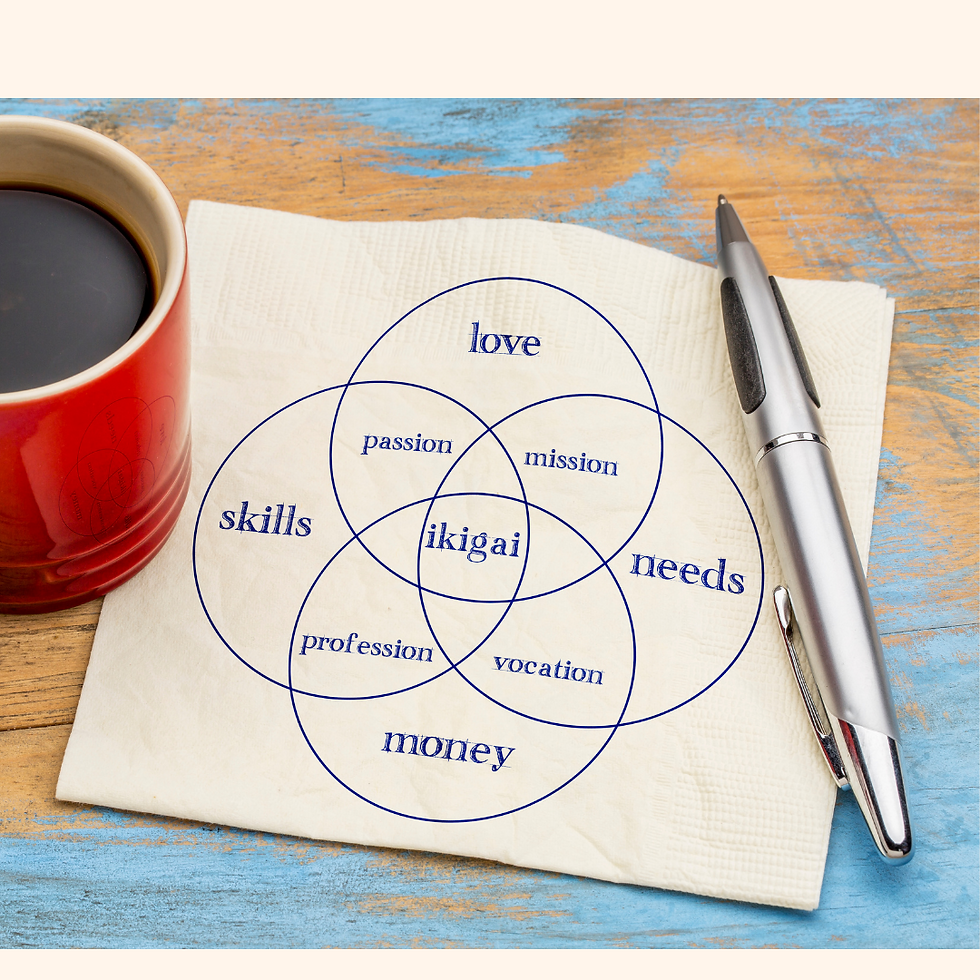How to find a career path that you love
- B-Thrive Community

- Jul 15, 2021
- 4 min read

We’ve all heard the expression “If you find a job you love, you’ll never work a day in your life.” This is however easier said than done. How many of us can honestly say that we love our jobs? The question becomes even more interesting when studies on job satisfaction in the US indicate that Black people are twice as likely to be in bad job positions compared to white people. Though there hasn't been a lot of studies on job satisfaction from a Black perspective in other regions of the world where we are a minority, It wouldn’t be surprising if similar sentiments were found there as well.
If you don’t love what you do, you’re most likely spending the majority of your waking hours putting your energy towards something that doesn’t bring you happiness. This can negatively impact other aspects of your life like your mental health and relationships. When looking at what major factors are involved in job satisfaction amongst employees, there’s usually five factors that play a huge role. A good salary, growth opportunities, reliable work-life balance, empathetic managers, and friendly colleagues. For some, the last two are irrelevant as true job satisfaction would come from self employment. Either way, figuring out your purpose in life will help you pursue a career you love.
Ikigai (ee-key-guy) is a Japanese concept that combines the terms iki, meaning “alive” or “life”, and gai, meaning “worth” or “benefit”. The combination of the two is believed to give you your life purpose. When we find balance in the spiritual and practical aspects of our lives, we can truly strive for a lifestyle that connects our passions and talents with things the world needs and are willing to pay for. This concept is similar to the French term “raison d’etre,” meaning ‘reason for being’.

So how can these concepts be applied in a practical way? One of the first things you need to do is ask yourself four questions:
What do I love doing? What am I great at? What does the world need? How can I get paid for it?
The first question might not be easy for everyone to answer. It might require some deep thinking. You might love singing, creating and cooking your own delicious recipes, or writing poetry. Whatever activity gets you the most excited can help you discover what you truly love doing. What do you Google or search for on YouTube the most?
In regards to the second question, think about the hobbies you’ve pursued and the skills you’ve learned. What talents have you shown from an early age? What type of subjects were effortless to you in school? It might help to get feedback from friends and family. This is where you figure out what your talents and capabilities are.
When looking at what the world needs, the “world” could be your local community, or even humanity as a whole. This part is based on the needs expressed by others or your own impressions. This need can range from a local hub for creative teenagers in your city, to an online service that solves a problem for people on a global scale.
As much as it would be great to not have to think about the financial aspect, truly finding a career path you love, often includes getting paid for it. You might be passionate about ice skating, but that does not necessarily mean you’ll get paid for it. You’d have to look at the overall state of the economy and establish if there’s even a demand for it in the form of a local ice skating rink for instance.
Some additional practical steps you can take towards finding a career you love is:
Speak to a career counselor/coach - It’s literally their job to help people figure out what they want to do for a living.
Take an online career aptitude test -The results can give you insights into your job personality along with a list of occupations to match it.
Identify a person who is your “career goals” - Who’s career would you love to emulate? Read up on them, check out their Linkedin profile, and if possible, reach out to them and see if they are open to a 20 min chat or mentorship.
Whether you’re already on your way to figuring out what brings you happiness and fulfilment in life, or if you have just started asking yourself what you want to do with your life, remember that your path is your own. Comparison is the thief of joy, and with picture perfect lives portrayed on social media, it’s easy to get side tracked and even envious of other people’s lives. Everybody’s journey is different, and we all work with our own unique timeline. If you truly want to find a career path that you love, start looking within yourself for the answers.
Sources: flexjobs.com, Forbes, Globe Newswire, Harvard Business Review, Officevibe, The Manifest, Workhuman



Comments